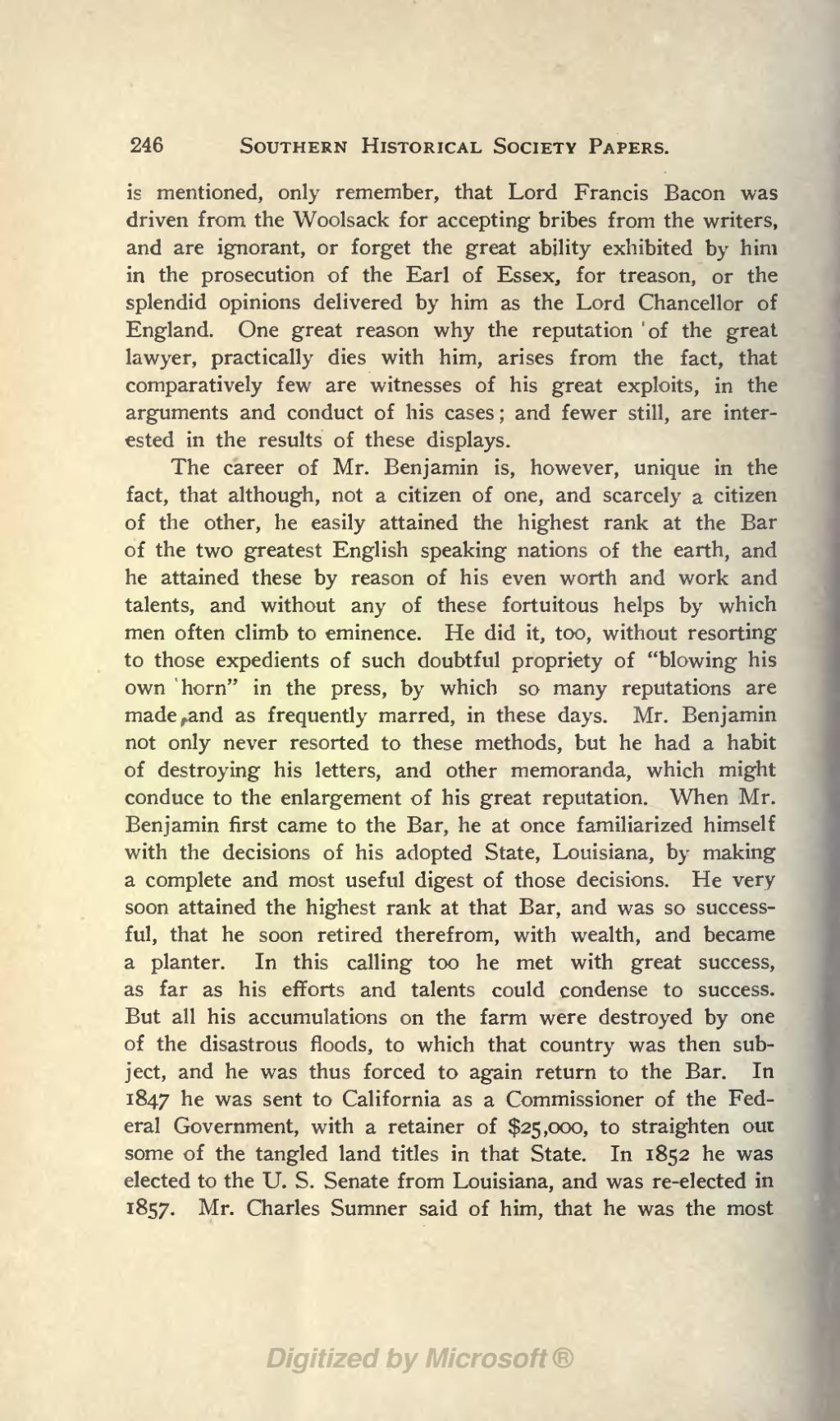is mentioned, only remember, that Lord Francis Bacon was driven from the Woolsack for accepting bribes from the writers, and are ignorant, or forget the great ability exhibited by him in the prosecution of the Earl of Essex, for treason, or the splendid opinions delivered by him as the Lord Chancellor of England. One great reason why the reputation of the great lawyer, practically dies with him, arises from the fact, that comparatively few are witnesses of his great exploits, in the arguments and conduct of his cases; and fewer still, are interested in the results of these displays.
The career of Mr. Benjamin is, however, unique in the fact, that although, not a citizen of one, and scarcely a citizen of the other, he easily attained the highest rank at the Bar of the two greatest English speaking nations of the earth, and he attained these by reason of his even worth and work and talents, and without any of these fortuitous helps by which men often climb to eminence. He did it, too, without resorting to those expedients of such doubtful propriety of "blowing his own horn" in the press, by which so many reputations are made and as frequently marred, in these days. Mr. Benjamin not only never resorted to these methods, but he had a habit of destroying his letters, and other memoranda, which might conduce to the enlargement of his great reputation. When Mr. Benjamin first came to the Bar, he at once familiarized himself with the decisions of his adopted State, Louisiana, by making a complete and most useful digest of those decisions. He very soon attained the highest rank at that Bar, and was so successful, that he soon retired therefrom, with wealth, and became a planter. In this calling too he met with great success, as far as his efforts and talents could condense to success. But all his accumulations on the farm were destroyed by one of the disastrous floods, to which that country was then subject, and he was thus forced to again return to the Bar. In 1847 he was sent to California as a Commissioner of the Federal Government, with a retainer of $25,000, to straighten out some of the tangled land titles in that State. In 1852 he was elected to the U. S. Senate from Louisiana, and was re-elected in 1857. Mr. Charles Stunner said of him, that he was the most
